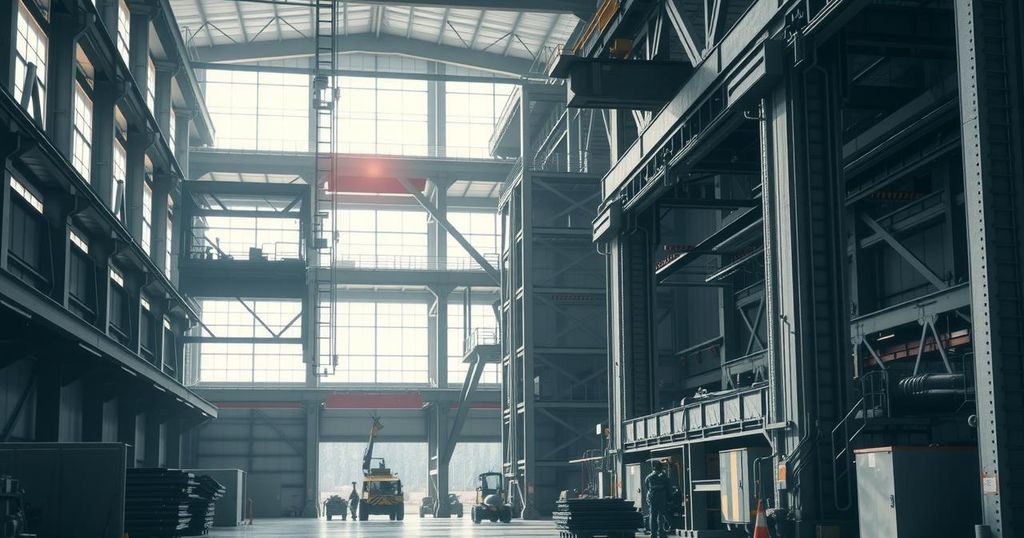ArcelorMittal South Africa plans to halt long product production by early April 2024, following failed government negotiations for support. This shutdown is expected to result in approximately 3,500 job losses and is driven by various operational challenges, including rising costs and increased competition from imports. The Newcastle and Vereeniging plants closure raises concerns for local businesses dependent on their products.
ArcelorMittal South Africa (AMSA) has announced its decision to cease the production of long products at its facilities by early April 2024 due to unsuccessful negotiations with the government regarding a rescue package. This move has significant implications, as it will result in the loss of approximately 3,500 direct and indirect jobs, highlighting the challenging operational landscape AMSA faces.
The challenges driving this decision include insufficient railroad connections, rising electricity tariffs, increased competition from cheap imports, and policies favoring smaller competitors by keeping steel scrap prices low. Initially expected to close by January, the production halt was postponed to fulfill existing orders, with final operations concluding in March.
The economic ramifications of this shutdown are considerable, as AMSA had anticipated a potential government support package of R1 billion (approximately $53.6 million). However, continued negotiations have failed, and AMSA has indicated that detrimental conditions impacting profitability have either remained the same or worsened, exacerbated by planned energy rate hikes.
CEO Kobus Verster has underscored the importance of the Newcastle and Vereeniging Works plants, which produce specialized steel products not available from other companies in South Africa. The cessation of operations at these plants raises concerns among local businesses that depend on these steel outputs for their own production needs.
In summary, ArcelorMittal South Africa is set to halt long product production in response to failed negotiations for government support, leading to significant job losses and economic challenges in the steel sector. Operational difficulties compounded by external factors such as rising costs and competition are pivotal to this decision. The closure raises alarms for local industries relying on specialized steel products.
Original Source: www.indexbox.io






